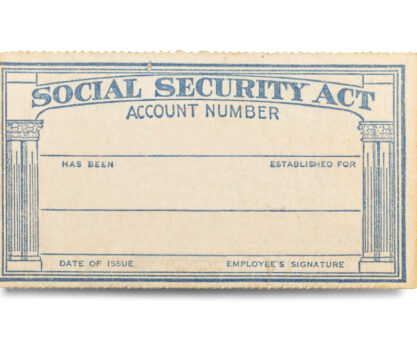According to the Social Security Board Of Trustees, the program’s trust funds are expected to run out of cash reserves in 2035. Without cash reserves, Social Security will only be able to use the taxes it takes in to pay benefits for current retirees.
How did this happen? A combination of demographic factors like lower birth rates and fewer workers paying into Social Security, combined with the wave of Baby Boomers filing for their retirement benefits, has started to quickly deplete the cash reserves.
If this comes to pass in 2035, Social Security beneficiaries will only be able to receive approximately 78% to 80% of their full retirement benefit. This is the worst case scenario if Congress chooses to do nothing.
Déjà Vu: The Ronald Reagan Administration
If you can remember the early 1980s, you’ll recall we’ve been in this tight spot before. President Ronald Reagan signed a number of amendments designed to address the same problems threatening the Social Security program today.
Though the 1983 legislation made a number of changes, the following changes are credited with keeping the program solvent:
- Taxing Social Security retirement benefits as income when combined income exceeds thresholds established by the Internal Revenue Service (IRS) each year.
- And gradually raising the Full Retirement Age from 65 to 67.
As you can see, these changes kept the reserves solvent for around four decades before we now find ourselves facing the same challenges.
“One of the top reasons why so many surveyed don’t want to delay their benefits is the fear of Social Security running out of money long before they reach age 70.”
Survey: Pre-Retirees Fear Social Security Will Run Out Of Money
According to a recent retirement survey, the vast majority of pre-retirees who responded said they plan on filing for Social Security either early (between ages 62 and 65) or when they hit their full retirement age (FRA). Only 11% in the 60 to 65 age group said they planned to delay until age 70 to maximize their benefit. One of the top reasons why so many surveyed don’t want to delay their benefits is the fear of Social Security running out of money long before they reach age 70.
Experts Say The Worst Case Scenario Is Unlikely
Leading retirement-planning gurus have pointed out that Congress will never risk the political backlash of cutting retirees’ Social Security benefits by 20% in 2035. As it was in the early 1980s, there are several solutions that can keep the program running well into the future. Not to worry — if you can afford to wait until 70 to maximize your Social Security benefit, there’s no reason to change your plan.














